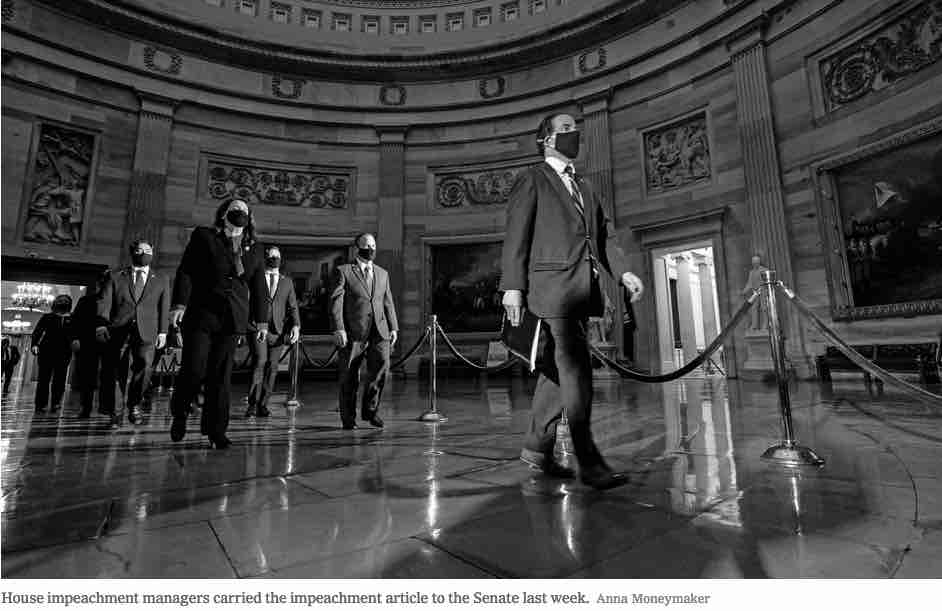As the Senate trial of Donald Trump nears, the defense is coming into view. It appears that most Senate Republicans will not defend Mr. Trump’s conduct around the Jan. 6 Capitol siege. Instead, they will rally around an argument about the chamber’s constitutional powers and the supposedly dangerous consequences for our politics if the Senate tries a “late impeachment.”
This argument is built on two closely connected representations, and Senator Rand Paul previewed them in his recent constitutional objection to “late impeachment.”
The first, in Mr. Paul’s words, is that “impeachment is a tool to remove someone from office. That’s it.” The Senate lacks the power to try an impeached president, once out of office, to determine if he is guilty of the charges the House has levied against him.
The second, Mr. Paul and others argued, is that Mr. Trump is now a “private citizen,” and so any action against him could serve no purpose other than revenge.
So less than a month after the events of Jan. 6, the impeachment process might be foundering on the remarkable claim — one that some senators seem to have adopted disingenuously so that they can avoid a defense of Mr. Trump’s action and pose instead as guardians of the Constitution. It is the claim that a president can escape the consequences of egregious, impeachable conduct, and in particular disqualification from future office, so long as the Senate runs out of time to try the case before the end of his term.
This Republican argument wholly misconstrues the text, history and structure of the Constitution’s impeachment clause. It is a mistake to minimize impeachment’s broader objectives by suggesting that removal from office was somehow its only or primary function.
The power to impeach specifically provides for two decisions: impeachment and conviction, resulting in removal, and then disqualification from holding office. As drawn from the English practice, and reflected in state constitutions at the time, both these actions were understood to serve the overall purpose of public accountability for egregious abuses of public office.




